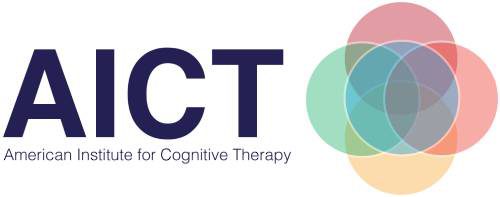Hypochondriasis or Health Anxiety
Like many people you may worry excessively about your health–some people may have called you a hypochondriac. As with any health concerns you should get a full medical examination by your physician. However, if you find that you are repeatedly requiring medical examinations that result in no findings of any disease—but you still feel worried about your health—then you may be suffering from hypochondriasis or health anxiety. This form of anxiety is a combination of depressive rumination and obsessive-compulsive thinking. About 16.5 % of us have health anxieties with 5.5% qualifying for the diagnosis of hypochondriasis. Fortunately, it can now be treated effectively with cognitive-behavioral therapy.
schedule a consultation at or intake@cognitivetherapynyc.com
People with health anxiety have 80% more doctors’ visits and are very likely to have other problems–most commonly depression and other anxiety disorders. The typical pattern is to demand “health perfectionism”—every physical discomfort or imperfection is interpreted by you as a sign of a dreaded disease. You may scour medical texts and internet sites that lead you to believe that you have another serious medical problem. You may check yourself in the mirror, continually feel yourself for lumps and imperfections, demand reassurance, and feel in a constant state of dread. You have difficulty accepting any uncertainty about your health and quickly discount the doctor’s claim that there is nothing wrong with you. You may view your worry as a sign that you are responsible–that you take your health ‘seriously”. Ironically, research on health anxiety shows that people with this problem are not less likely to smoke. In some cases, health anxiety is so severe that the person actually neglects seeing a doctor, feeling certain that an examination will reveal the dreaded news.
Cognitive-behavioral therapy helps in the following ways: 1) Develop the motivation to modify your health anxiety (since you may falsely believe that your worry has prevented terrible things from happening); 2) Learn how to distinguish between productive (or prudent) worries and unproductive worries; 3) Learn how to accept uncertainty as an inevitable part of life; 4) Develop alternative–and less catastrophic–interpretations of everyday imperfections; and 5) Avoid reassurance seeking and checking yourself.
For more information, read sample chapters from
Cognitive Therapy for Chronic Pain: A Step By Step Guide by Beverly E. Thorn
These excerpt are posted with permission of Guilford Publications, Inc. and are subject to copyright law and restricted from further use. No part of the excerpts may be reproduced, stored in a retrieval system or transmitted in any form or by any means (electronic, photocopying, recording or otherwise) without prior written permission of the publisher. To obtain permission please contact Guilford Publications, Inc. at the address below or e-mail: permissions@guilford.com This book may be ordered directly from Guilford Publishing at http://www.Guilford.com
Recommended Readings:
Anxiety Free: Unravel Your Fears Before They Unravel You by Robert L. Leahy
The Worry Cure: Seven Steps to Stop Worry from Stopping You by Robert L. Leahy
Blog Posts on Hypochondriasis:
Clinicians may find the following books on cognitive behavioral therapy to be helpful in treating anxiety:
Leahy, R. L., Holland, S. J., & McGinn, L. K. – Treatment Plans and Interventions for Depression and Anxiety Disorders (2nd ed.)
Leahy, R. L. – Cognitive Therapy Techniques
Sookman, D. and Leahy, R. L. – Treatment Resistant Anxiety Disorders: Resolving Impasses to Symptom Remission
Sample Chapters from Guilford Press
- Cognitive Therapy for Chronic Pain: A Step-by-Step Guide by Beverly E. Thorn
- Handbook of Health Psychology and Aging Edited by Carolyn M. Aldwin, Crystal L. Park, and Avron Spiro III
- Handbook of Health Psychology and Behavioral Medicine Edited by Jerry M. Suls, Karina W. Davidson, and Robert M. Kaplan
- Handbook of Pain Assessment, Third Edition Edited by Dennis C. Turk and Ronald Melzack
- Managing Pain Before It Manages You, Third Edition by Margaret A. Caudill
- Psychological Approaches to Pain Management, Second Edition: A Practitioner’s Handbook Edited by Dennis C. Turk and Robert J. Gatchel
- Treating Health Anxiety: A Cognitive-Behavioral Approach by Steven Taylor and Gordon J. G. Asmundson
This excerpt is posted with permission of Guilford Publications, Inc. and is subject to copyright law and restricted from further use. No part of this excerpt may be reproduced, stored in a retrieval system or transmitted in any form or by any means (electronic, photocopying, recording or otherwise) without prior written permission of the publisher. To obtain permission please contact Guilford Publications, Inc. at the address below or e-mail: permissions@guilford.com This book may be ordered directly from Guilford Publishing at http://www.Guilford.com

